By Elihu Harris, Mary L. G. Theroux (Washington Examiner)
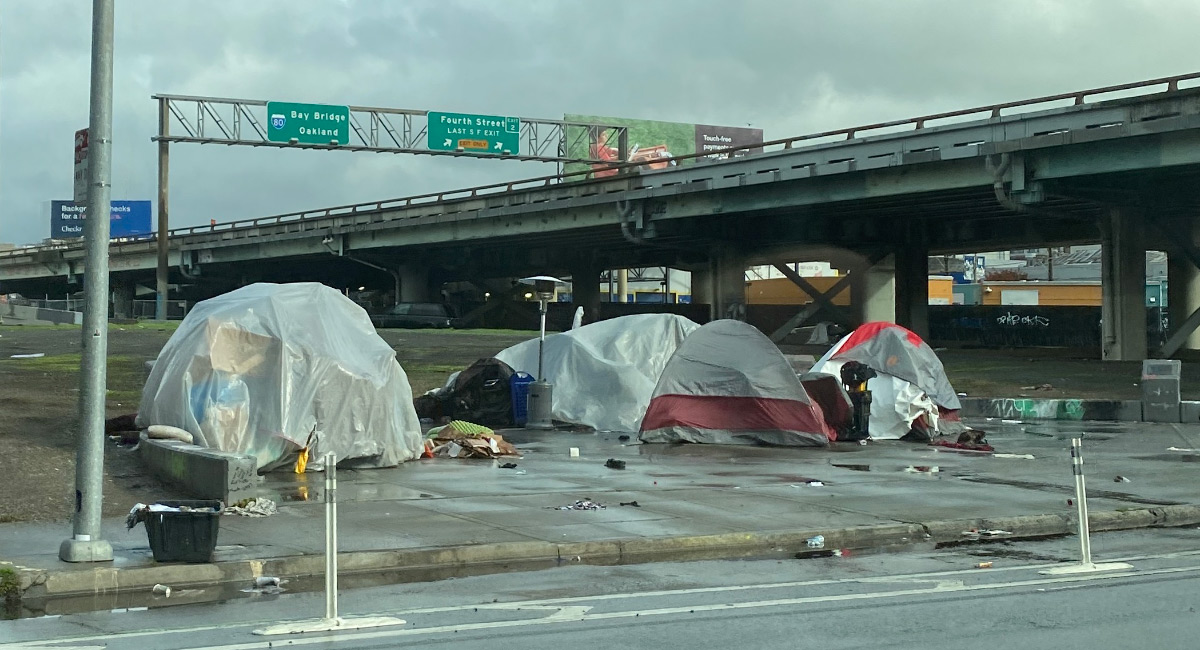
Oakland’s homeless rate, according to the most recent estimate, is 940 for every 100,000 residents, compared to San Francisco’s 906. In fact, Oakland now has the “distinction” of having the highest homeless rate in California—a significant distinction in the state that leads the nation in the total number of homeless and includes the five major U.S. metropolitan areas with the highest percentages of unsheltered homeless. California, like many other states, is failing the homeless because it has no strategy. In direct contrast, San Antonio has developed a highly successful systemic approach to the problem with a 77% decline in homelessness. READ MORE »
|
By Mary L.G. Theroux, Adam B. Summers, Lawrence J. McQuillan, Jonathan Hofer, Hovannes Abramyan, and Scott Beyer; Edited by Adam B. Summers; Foreword by Scott Ackerson
|
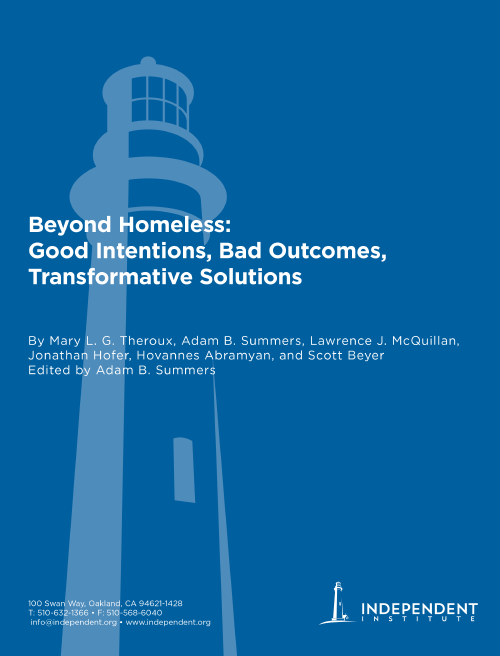 |
By Victor Davis Hanson (American Greatness)
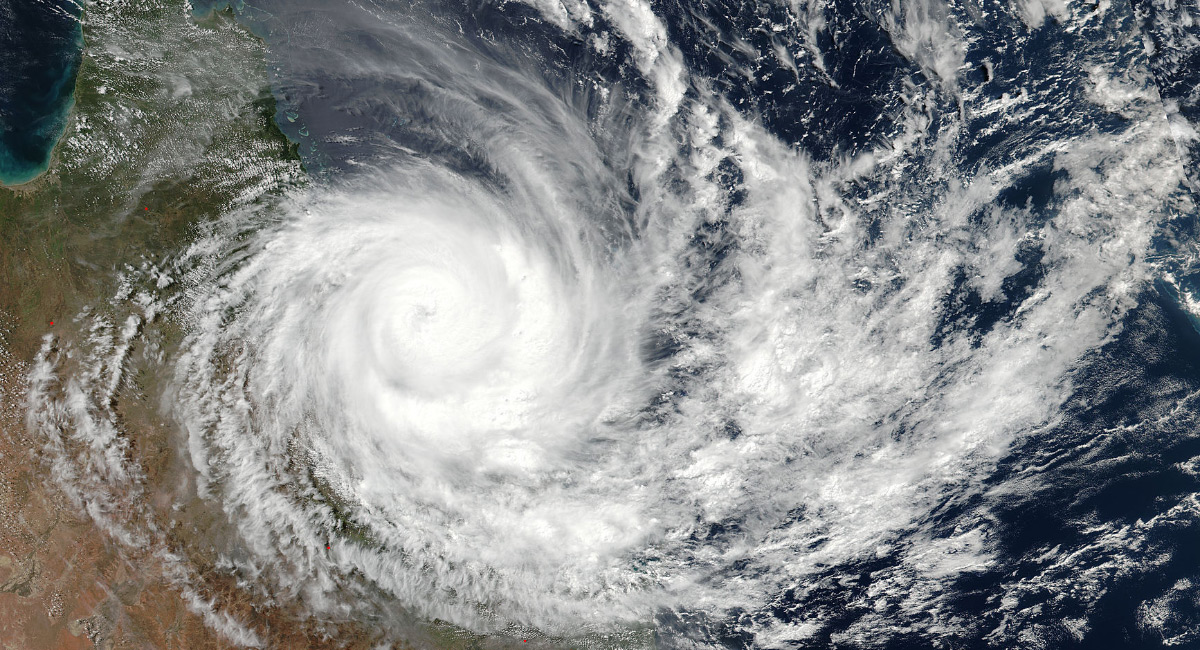
Joe Biden, first as a candidate and then in the White House, from the outset saw the COVID-19 pandemic mainly as a means of leveraging political support, from the manner in which the lockdowns allowed him to run a virtual campaign from his basement to equating Donald Trump with the COVID-19 virus. Like many on the Left, Biden was overt in such cynicism. So were Hillary Clinton, Gavin Newsom, and Jane Fonda—who claimed that COVID was a “never-let-a-crisis-go-to-waste” moment. Panic and lockdowns could help achieve single-payer health care, or a recalibrated capitalism, or the end of Donald Trump himself. READ MORE »
|
|
|
 |
By Nathan P. Goodman, Christopher J. Coyne, Abigail Devereaux (The Independent Review)

In response to the COVID-19 pandemic, governments around the world adopted a variety of policies expanding the scope of their power. Some of these effects are immediate and observable. Others, however, are not readily observable and only appear over time. We explore these long-run consequences with a specific focus on how institutional changes can persist after a public-health crisis ends, causing increases in state power. These changes have the potential to undermine the liberties of future persons and disrupt vital, bottom-up, non-state processes of successful social coordination. READ MORE »
|
|
|
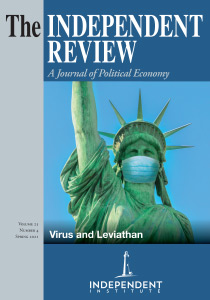 |
By Alvaro Vargas Llosa (National Review)
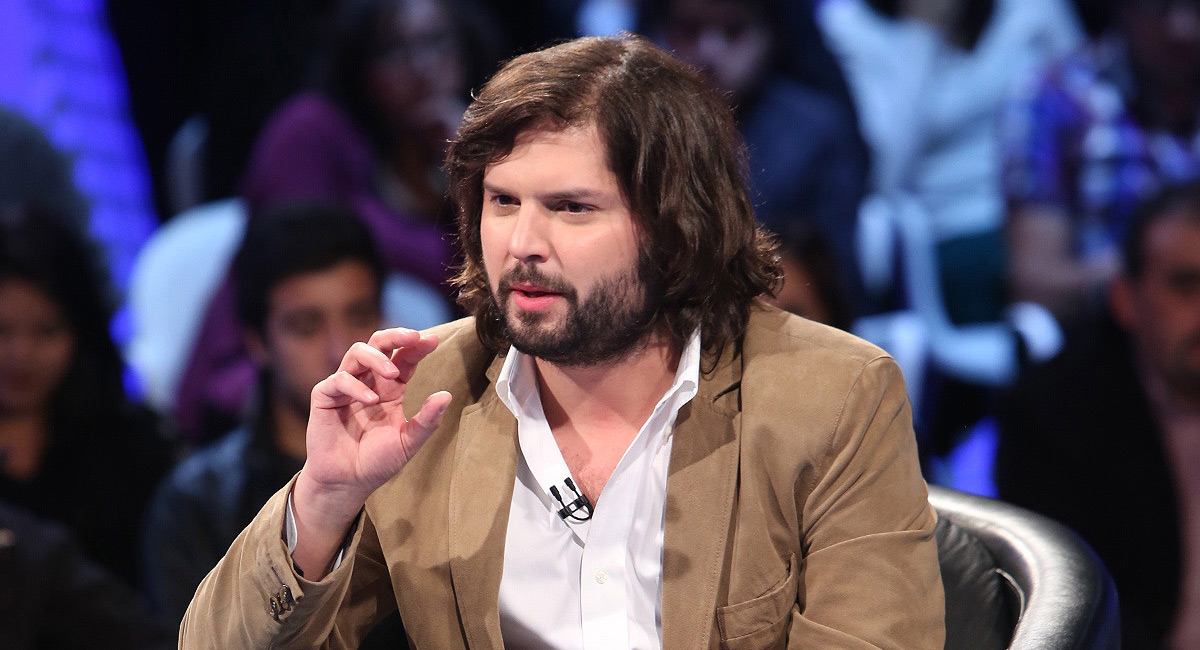
Country after country has fallen under the spell of the far Left in Latin America. The result of Chile’s presidential election which has crowned Gabriel Boric, a 35-year-old firebrand with zero understanding of what brought success to the country in recent decades, confirms the trend that has placed much of the region under illiberal, anti-Western, and anti-capitalist governments. Boric might turn out to be a moderate, but his demonization of Chile’s successful socioeconomic model, his support of violent riots in the last couple of years, and his alliance with the Communist Party indicates that he will need to do a spectacular volte-face for this to happen. READ MORE »
|
|
|
 |
By K. Lloyd Billingsley (American Greatness)

Aside from the passing of prominent American political and business leaders, in 2021 we lost numerous cultural figures who have enriched our lives, including the brilliant scholar and author Angelo Codevilla, actors Cicely Tyson and George Segal, radio pioneer Rush Limbaugh, sports legends Hank Aaron and golfer Lee Elder, pianist Chick Corea, crooner Lloyd Price, rocker Jerry Lee Lewis, jazz musician Gary U.S. Bonds, saxophonist Gene “Big Daddy” Barge, and many more. If the great American nation that gave birth to jazz, blues, and rock is to remain free, we need many more such people. And if others don’t pick up the torch, they won’t be resting in peace. READ MORE »
|
|
|
 |
By Richard K. Vedder (The Independent Review)
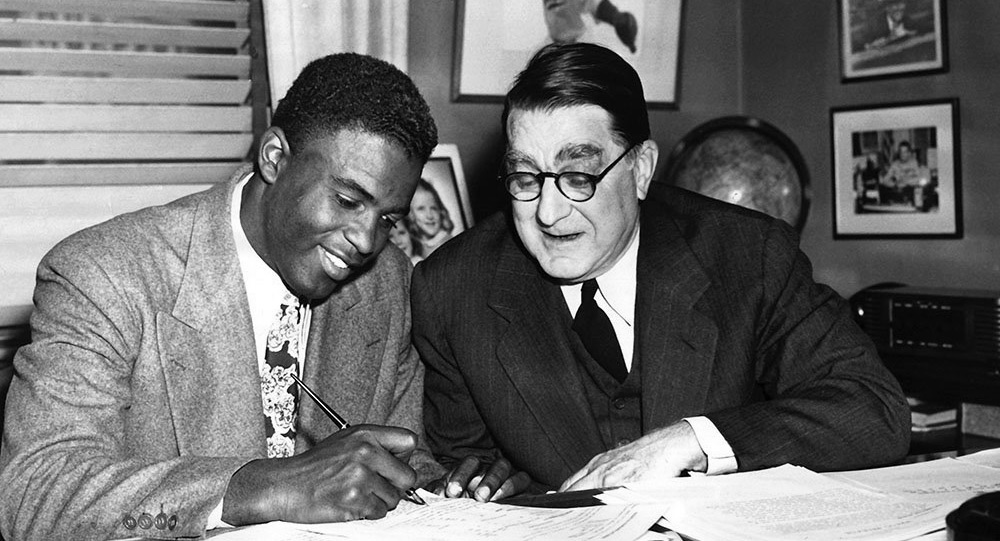
In the generation after 1940, blacks made major progress, narrowing economic differentials between them and others while discriminatory barriers began a real decline. However, black economic progress since about 1970 has been far more uneven, not mainly because of residual racial prejudice but rather largely because government efforts to alleviate poverty and other problems have disproportionately hurt African Americans, destroying robust family lives, leading to reduced workforce participation, and making disparate numbers of blacks de facto wards of the state. READ MORE »
|
|
|
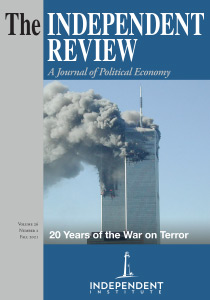 |
By Gary M. Galles (Mises Wire)

Over and over, people, including many economists, have misunderstood issues such as these when evaluating real-world firms through the combination of simplifying assumptions that make real issues disappear and a failure to apply the self-interest test. But before we decide to follow their advice, it would behoove us to make sure we have not assumed away what is actually causing what we see. And that is even more important when we are talking about making laws on the basis of critical false premises of nirvana. READ MORE »
|
|
|
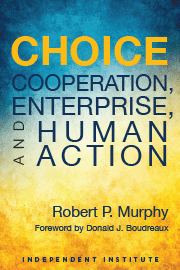 |
|
|
An easy and free way to support Independent is to set us as your designated charity on AmazonSmile. Then, when you buy something on Amazon, head to smile.amazon.com and a portion of the purchase price will be donated to Independent at no cost to you. |
|
|
|